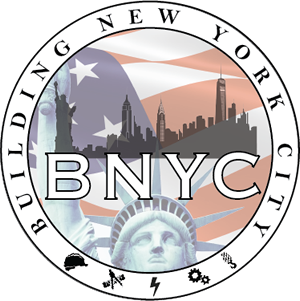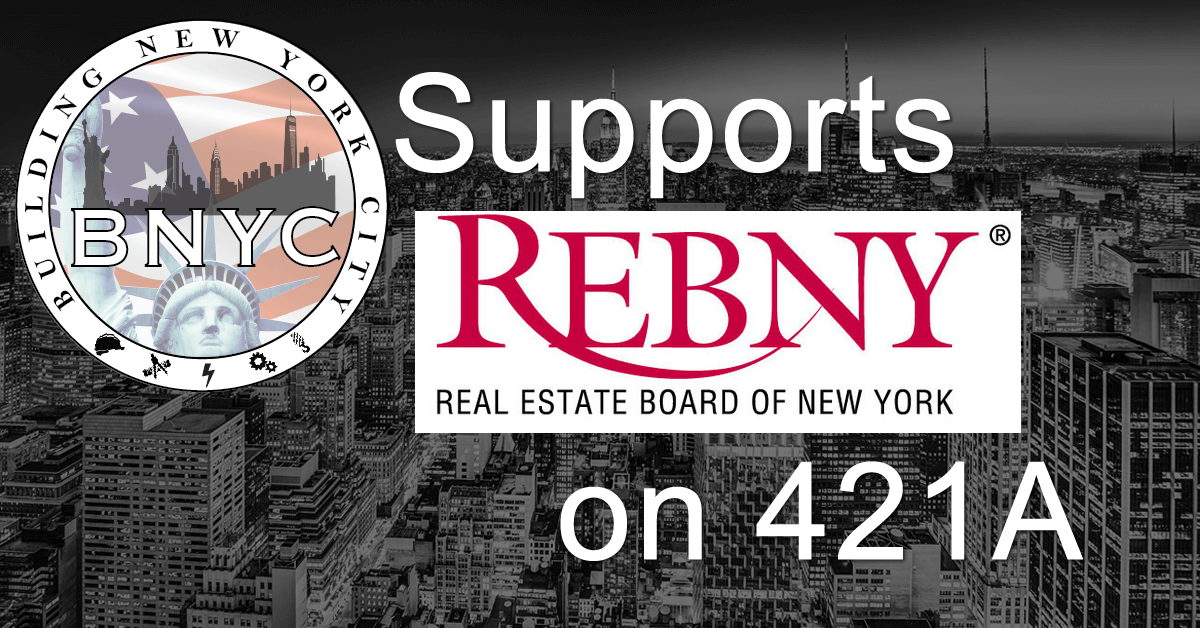According to public reports, the Real Estate Board of New York has released a detailed report on the role that the 421-A program has had in spurring the development of affordable housing in NYC:
“More than half of the below-market-rate residential projects financed by the de Blasio administration’s housing agency in the past two years used the now-expired 421-a tax break, according to a new analysis from the Real Estate Board of New York.
REBNY, the industry’s lobbying organization, examined public data from the city’s Department of Housing Preservation and Development. It found that of the 156 residential projects with lowto moderate-income apartments the city financed, 50.6 percent received the 421-a exemption, and nearly 10 percent were union projects.” (http://www.capitalnewyork.com/article/city-
h a I l/2016/04/859795 7 /reb ny-p u sh es-421-sign ifica n ce-below-m a rket-rate-h o using)
The REBNY report concluded that the abatement program, “plays a critical role” in creating low- to middle-income housing, especially where land prices are high.” In spite of this reality, the Building Trades Council of New York, playing its typical “dog in the manger” role, would not compromise in the negotiations last winter to extend the vital construction incentive. (https://en.wikipedia.org/wiki/The Dog in the Manger)
In addition, it should be pointed out that merit based shops are doing the overwhelming majority of all of the affordable housing in the city. If labor got its way, affordable housing development in New York would grind to a halt.
As Jolie Milstein, president of New York State Association for Affordable Housing, said in a statement:
“New York City is facing a housing crisis, and construction union leaders are adding to the problem by pushing for new prevailing-wage mandates that stifle affordable-housing development.”
(http://www.crainsnewyork.com/article/20160111/REAL ESTATE/160119996/prevailing-wagewo u Id-raise-afford ab le-housi ng-costs-by-13-officia ls-find)
At BuildingNYC, we believe that the obstructionist role of the building trades must end. As BNYC spokesperson Brad Gerstman points out:
“Rather than negotiating a fair compromise, the building trades adopted a ‘my way or the highway’ posture that will end up depriving thousands of New Yorkers of the affordable housing they need. Despite the overwhelming evidence that union building is more expensive and no safer, the BTC is using dirty politics to advance their interests instead of making affordable housing a reality for the middle class in New York City.” (http://buildingnyc.org/)
BNYC believes strongly that it is time for the governor to intervene and draft an extension proposal for the vitally needed 412-a program. We should not be giving veto power to those forces who, motivated by pure self interest, do not have the public interest at heart.


